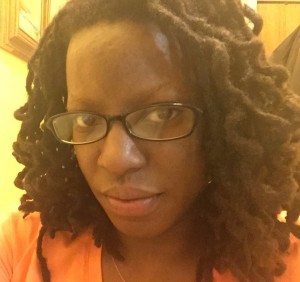I was about nine I think when it first happened. I was at summer camp in Pennsylvania. I couldn’t breathe. I could feel the air slipping away and I couldn’t get it back into my lungs. I swore in that moment that my heart was going to stop beating. It was over. I would die miles away from my mother. The next time she would see me, I would be in my casket.
But I didn’t die. I didn’t even pass out. Gradually, I was able to calm down. My host mother helped me settle down, catch my breath, and breathe slowly. I didn’t know it then, but this was my first panic attack. I can’t remember what brought it on…the catalyst. All I knew is that it felt terrible and I never wanted to experience it again. It was also the beginning of my obsessive compulsive disorder. Little did I know, but my anxiety was at its height. I didn’t have the insight to recognize that all the abuse, the neglect, the molestation and the violence all lead up to me being in a consistent state of anxiety.
And then the thoughts began. The intrusive thoughts that made me feel incredibly uncomfortable. Images would flash in my head almost every second of the most terrible things I could imagine and I had no idea how to stop them. I would cry, laugh and tell them to go away but they wouldn’t let up. And then the obsessive counting and having to say things or do things in a certain way just to feel normal…if only for a while.
It gradually got worse during my adolescence to the point where I contemplated suicide. I knew I didn’t want to die. I just wanted the thoughts to stop. I began therapy in high school with a wonderful social worker who helped me work towards stabilizing. Throughout my early twenties, my anxiety wasn’t as bad but it was still present. It wasn’t until I got into an abusive marriage that my anxiety and OCD kicked up again. Once again, I found myself battling with intrusive thoughts and panic attacks. It became clear that stress was a major trigger for me.
After leaving my marriage, I once again committed to therapy and completed my second masters in social worker. It shouldn’t be that difficult to understand why I decided to enter the field of social work considering my experiences. There is an old saying that clearly depicts why someone with mental health issues may gravitate towards working with others that face similar issues. “We work on ourselves in order to help others but we also help others in order to work on ourselves.”
I’m currently working in an outpatient substance abuse clinic in East Harlem and many of the clients I work with have significant mental health issues. For some, their mental health issues are chronic and persistent and impact their daily functioning. I empathize when I hear a client say things like they wish they were normal and they didn’t have to struggle daily. I empathize with their pain and uncertainty because I have experienced it and continue to struggle with my own mental health issues.
This is why I truly believe in Stigma Fighter’s mission. It is tremendously difficult for people to even have the courage to admit that they are struggling with mental health. It’s imperative that we stop dehumanizing and demonizing people who are struggling with things that we don’t understand. Stigma makes people reluctant to get treatment and lack of treatment impacts society as a whole. The solution is not to “lock crazy people up” but to let people who are mentally ill know that they are not alone, that there are services they can utilize, and that it is possible to live a healthy life despite their challenges.
Jennifer Nelson is a certified rehabilitation counselor and licensed social worker. She currently lives in Brooklyn and works in Manhattan. She is also a blogger and writes about her experiences as a single mom dating in New York City. http://brooklynsinglemama.








“We work on ourselves in order to help others but we also help others in order to work on ourselves.” That should be my new mantra. Wonderful. Thank you for pushing past the daily struggle and still managing to do amazing things. I know it can be super tough.